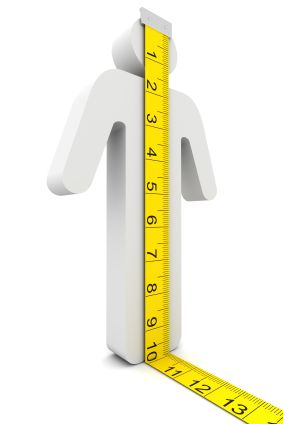Environment
It’s Weird, Candidate Height Matters in Elections
Why does candidate height matter? Not for the reasons many people think.
Posted October 30, 2012

When a 5'9" political science professor (that would be me) talks with his 6'7" co-author (that would be Dave Schmitz), it is not surprising that the conversation can turn to the “weird” fact that the taller candidate has won the popular vote in 67% of all U.S. presidential elections. While interesting water cooler conversation and often a tidbit dispensed by prognosticating political pundits, this oddity seems to be more than a statistical fluke and worthy of some explanation.
But first, how do our current contenders measure up? Barack Obama is 6'1", and challenger Mitt Romney is 6’2”. Our argument, which is grounded in evolutionary theory, does not say that Romney will win because he is the tallest candidate. It suggests that we voters prefer our leaders in general to be tall. And the fact that both of these candidates are taller than the average U.S. male citizen, who is my size at 5'9", is completely consistent with this argument. Also consistent with this argument is the fact that Romney’s major Republican challengers Rick Perry, Newt Gingrich, Herman Cain, and Ron Paul each are 6'0" or taller.
So why would we prefer taller leaders? Our explanation relies on evolutionary psychology, which suggests that human behavior is the result of not only people's environment, such as things they learn from their parents, but also long-term evolutionary forces, such as psychological mechanisms that evolved to solve our ancestors' problems regarding survival and reproduction. Although it may seem irrational in the modern context, we may prefer taller leaders because our ancestors who selected more formidable allies (height is a common cue for physical formidability) were more likely to survive and pass on related genes in their violent environment. In other words, when our ancestors had a big, strong friend who would help them acquire and protect resources (e.g., food, shelter, and territory), they had a relative advantage in terms of living longer and producing more children.
Studies of all kinds of animals show that greater physical size and higher social rank go together. This relationship has been found in a wide range of nonhuman animals, from our closest relatives, chimpanzees, gorillas, and baboons, to African elephants, Red Deer, and even to varieties of birds and fish.
In the realm of human animals, anthropologists measuring skeletons in pre-classical Greek and ancient Mayan graves found a clear association between greater physical stature and "political control" (those anthropologists have all the fun). Further, modern humans tend to perceive individuals with greater authority status as taller than they actually are and, conversely, to perceive taller individuals as having higher professional status. (This study was based on rating professors, and yes, as an average-height professor, this worries me a little). Research in a variety of countries also shows, among other advantages, that taller males make more money and get more job promotions. And finally, in politics specifically, winners of elections are perceived as being taller after than before the election, while losers suffer yet another indignity and are perceived as shorter.
With this background research in mind, to test our argument about a preference for leaders with greater physical stature we conducted a study that took the perspective of followers (versus leaders). We gave our subjects, U.S. and international undergraduate students at different schools in different parts of the country, three tasks: draw the "ideal national leader," draw "the typical citizen," and, finally, draw a meeting of the leader and citizen. Because we expect people to prefer more physically formidable leaders, we predicted our subjects would tend to draw a taller leader meeting a shorter citizen, with height measured by the vertical size of the figures.
In fact, that is what we found. More than twice as many subjects (64%) drew a taller leader than drew a taller citizen (31%). And remember the reference to the international students? We found similar patterns in their responses, which suggests the preference for leaders with greater physical stature not only exists in the U.S. but also in different cultures around the world. This is important evidence to evolutionary psychologists, because they argue that a universal behavior cannot be explained by people learning from their specific environment; therefore, evolutionary forces, not environmental-cultural forces, are the most likely explanation for the behavior.
So we know this election’s crop of presidential candidates measures up, at least in these evolutionary terms, but let’s hope they also measure up when it comes to leading the country.
- - - - - -
For more information, see: Murray, Gregg R., & J. David Schmitz. 2011. "Caveman Politics: Evolutionary Leadership Preferences and Physical Stature." Social Science Quarterly 92(5): 1215-35.
If you enjoyed this post, please share it by email or on Facebook or Twitter. Follow me on Twitter @GreggRMurray to see other interesting research.


